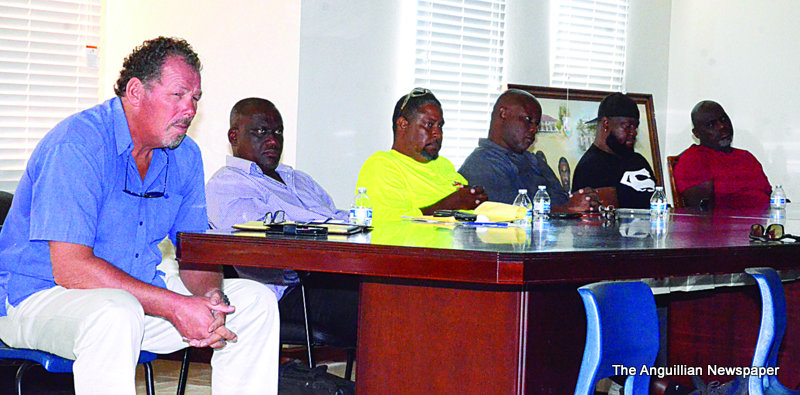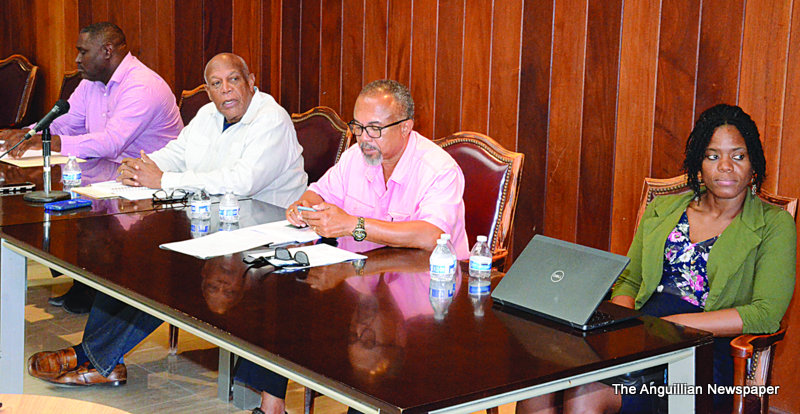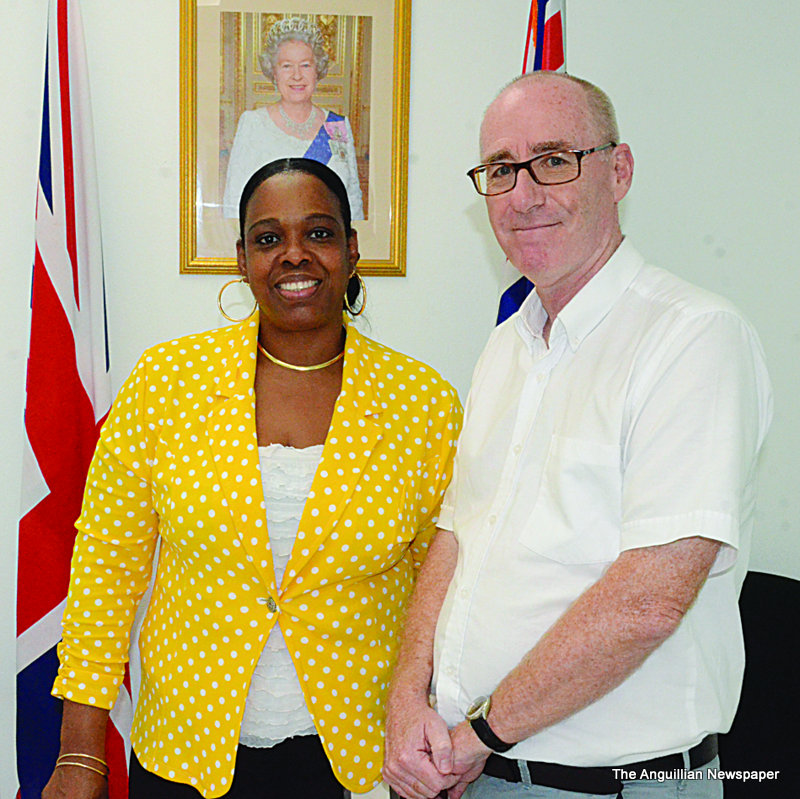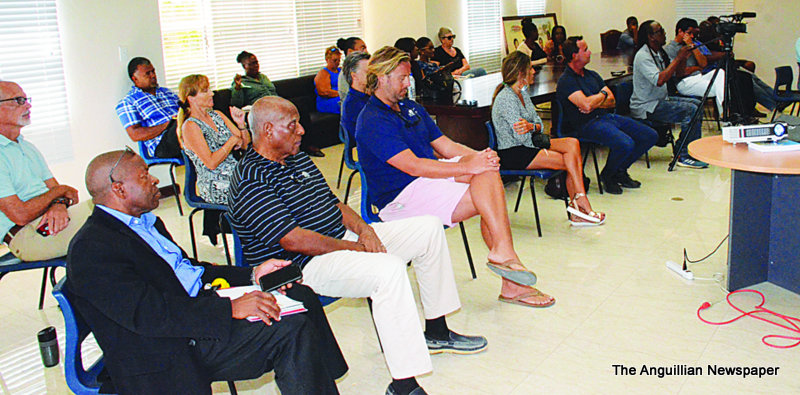
Hoteliers, Villa Operators and others 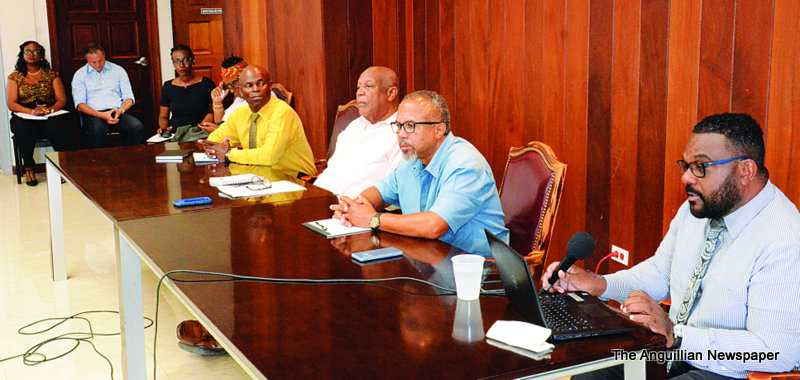
Premier Victor Banks and other Government Officials
The period, May 18 to May 22, has seen a series of stakeholder meetings in Anguilla aimed at re-starting the economy as the Government, in Premier Victor Banks’ words, “de-escalates the restrictions on our campaign to contain the spread of the covid-19 pandemic.”
The virus has virtually shut down the island’s economy, particularly the accommodation sector. It is this sector which, not only accounts for the biggest slice of Government’s revenue, but provides employment for hundreds of Anguillians and, of course, attracts significant numbers of tourists to Anguilla. That is why the first in the series of meetings, under the general title, “Stakeholder Economic Development Sessions”, held at the Ministry of Finance, concentrated on hotels and villas.
The other sessions, during the week, dealt with restaurants and bars, fishing and agriculture, business and service providers, transportation and tour operators, entertainment, culture and arts practitioners, and other supporting services for the tourism industry.
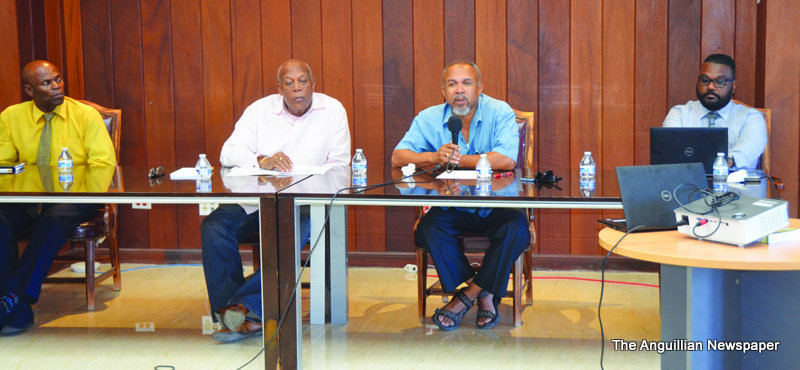
Government officials and others at the meeting for Restaurant and Bar operators 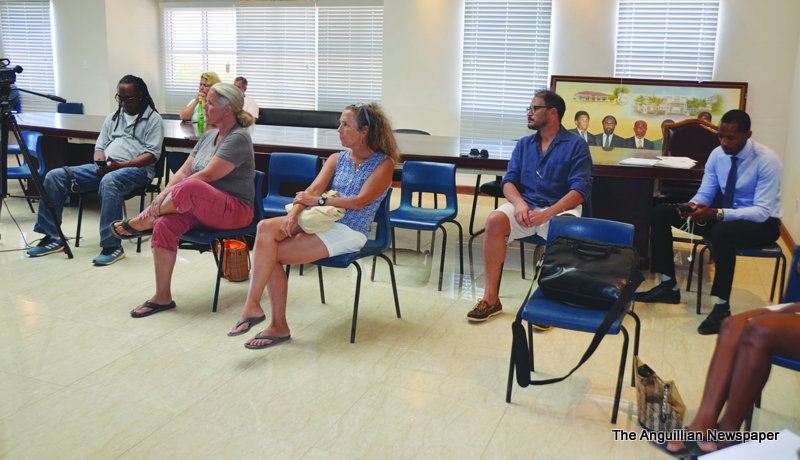
Government officials and others at the meeting for Restaurant and Bar operators
At the opening session, Premier Banks, who has responsibility for tourism, told the many hoteliers and villa operators: “The accommodation sector is really the sector that drives other sectors of our economy because tourism is our core industry – hence we thought it is important that we begin with the accommodation sector.”
The Premier continued: “It has been almost two months since we closed our borders on March 20. We have, as a result, been successful in containing the possibility of imported transmission [of the covid-19 disease]. With no active covid cases for seven weeks, this has been a success story as far as the measures implemented are concern. But, of course, not having active cases is not the end of the journey. We must progress to that point where we begin to have an active economy.
“It means that we must now strike a balance between the containment of the virus and the restoration of the economy. The public health professionals and personnel have done an excellent job, and ought to be commended as far as the issues of containment are concerned. As a result, we build a good reputation as a jurisdiction. It is a reputation, however, that has no real value from an economic standpoint unless we can cleverly leverage it. To put it bluntly, having no cases [of the covid-19] does not put food on the table.”
Premier Banks stated that, among the issues under consideration, “are the mode of access and the protocols for allowing both citizens and visitors to return to our shores” and the recommended protocols of testing, tracing, treatment, quarantine and isolation for the virus. He went on: “There are a number of pre-conditions to opening our borders that need to be discussed. In terms of the practicality and cost of many of these pre-conditions, there needs to be some innovation and creativity. It is becoming clearer that we can only successfully mitigate some of the risks involved in opening our borders. However, we cannot eradicate all the risks.
“As a consequence, we have to resign ourselves to the fact…that we may encounter some risks in whichever protocols we implement. In short, we will have to find a way to co-exist with some levels of this virus. This will not make many people, including myself, comfortable, but it is real. The alternative can lead to widespread social and economic depression, as well as a level of frustration that can lead to social instability and disruption of all kinds. It will become more challenging to achieve compliance as well…At the end of the day, our most important responsibility remains keeping our community safe.”
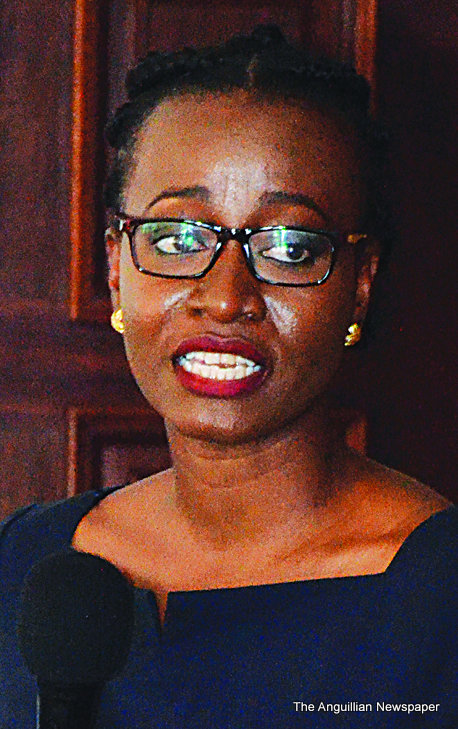
Ms Rhina
Meade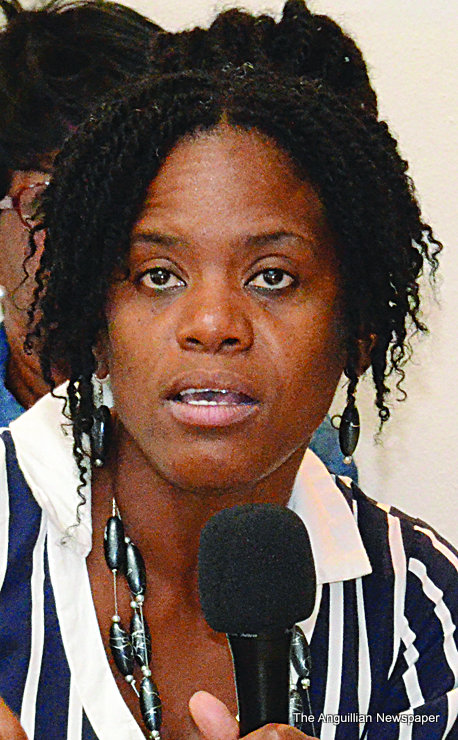
Dr Aisha
Andrewin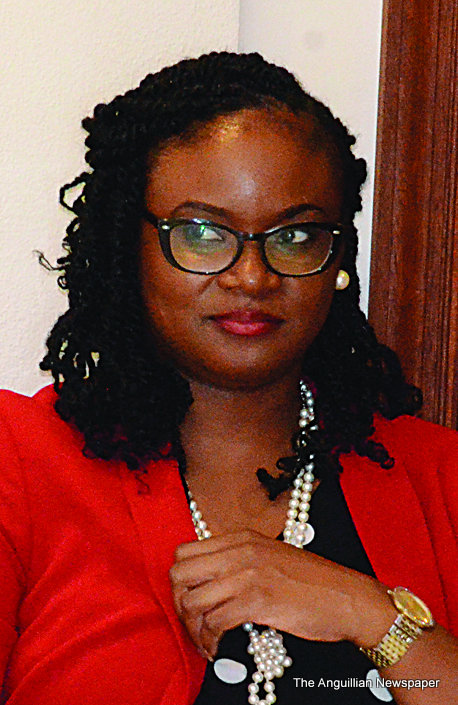
Ms Amber
Woodley
During the discussions, a number of hoteliers and villa operators sought to reach a date by which the Government could allow the properties to reopen so that they, their employees, and the economy, could benefit and rebound. Such a date could not be given by Government. It was pointed out, however, that it was being considered that among the first persons who may be allowed in Anguilla, but with the observance of the necessary protocols and caution, were likely to be Anguillians and investors. It was also suggested that some villas and other small properties, with limited numbers of guests, may be permitted to reopen later on. The larger properties were another matter to consider in due course. It was observed that, by this time of the year, the tourism season usually begins to run out and plans for its reopening begin to take shape. Thanksgiving and Christmas are normally big events for the hotels at the beginning of the new tourism season.
The week-long series of Stakeholder Economic Development Sessions were led by a number of Government officials. In addition to Premier Banks, they included the Minister of Health and Social Development, Mr. Evans Rogers and his Permanent Secretary, Mr. Foster Rogers; the Chief Medical Officer, Dr. Aisha Andrewin; the Minister of Home Affairs, Mrs. Cora Richardson-Hodge; the Minister of Infrastructure, Communications, Utilities, Agriculture and Fisheries, Mr. Curtis Richardson; Parliamentary Secretary, Tourism, Mr. Cardigan Connor; and the Chairperson of the Tourist Board, Mrs. Donna Banks.
The technical information regarding the various sectors and their importance to the economy was provided by two officials of the Ministry of Finance. They were: Ms. Rhina Meade, Director of Economic Planning; and Ms. Amber Woodley, Economist.


